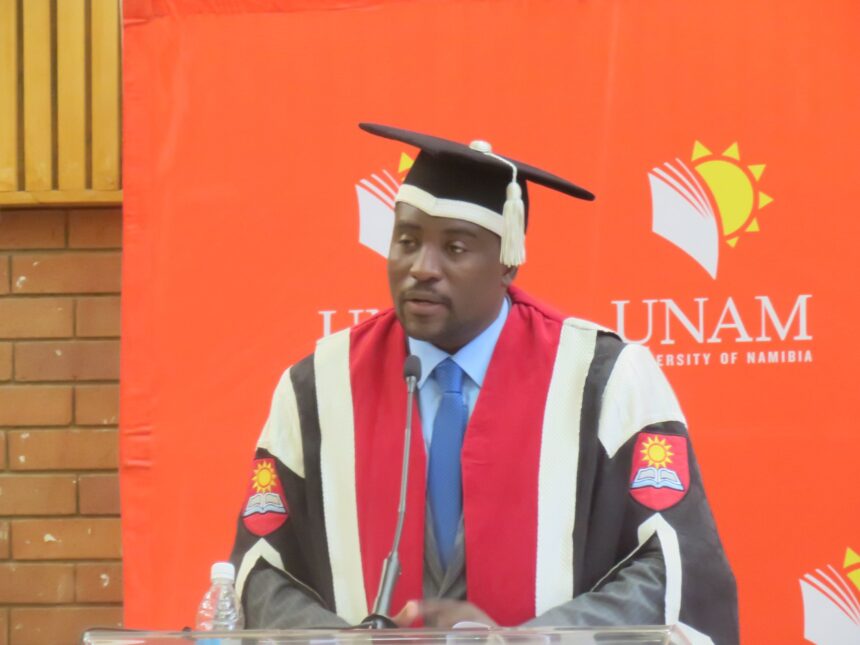RUNDU – University of Namibia vice chancellor Kenneth Matengu has urged the regional leadership of the two Kavango regions to collaborate with the university to pursue agricultural projects.
Speaking during the university’s Rundu campus graduation on Tuesday, Matengu said the university is ready to avail its academic expertise in the area of agriculture.
“Unam has done well in this sphere, and it is befitting that it is provided an opportunity to be a key player for the purpose of impacting our society with regards to food security,’’ he noted.
The two regions have several active agricultural green schemes, which are providing opportunities for local farmers to cultivate crops and improve their livelihoods.
“One such project is the Mashare blueberry project, which has gained national attention for its innovative approach to sustainable agriculture and community development,’’ he said.
“Through the project, many people have been trained in modern farming techniques, such as drip irrigation and soil conservation, and have been provided with high-quality blueberry plants. This has allowed them to produce high-quality blueberries for export and generate income for their families and the community as a whole.”
Matengu stated that the success of the blueberry project is a testament to how knowledge, skills, and dedication can be leveraged for development.
“We should emulate this example. It also demonstrates the importance of allowing knowledge to show its response to poverty. When we invest in education and training, we unlock the potential of individuals and communities to create positive change and contribute to national development,” he noted.
During her keynote address, higher education minister Itah Kandjii-Murangi supported Matengu’s call to team up with the two riverine regions, saying the regions are known for their abundant fertile land and water resources essential for contributing to the growth of the agriculture sector in Namibia to achieve food security.
“I am also aware of the agreement that the University of Namibia has entered into with the Kavango West Regional Council to collaborate in identified areas of mutual interest,’’ she noted.
As the university continues to celebrate its 30th Anniversary, the minister said now is the time to pause and reflect on the journey Unam has travelled.
“To celebrate milestone achievements and to envision the Unam we want, the university will consider introducing courses in the fields of agriculture at the campus,’’ she said.
“It is my belief that this will assist in modernising subsistence agriculture in the regions and contributing to food security in the country.”
Rundu Campus currently hosts three schools, namely, Education, Commerce and Nursing with about 586 graduands in those schools. The number of graduands is the third highest, with the Windhoek-based campuses being the highest, followed by the Northern campuses.
At Rundu, about 392 females (66%) and only 202 (34%) males graduated.



